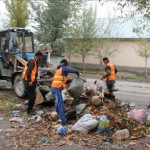
In the Kyrgyz Republic, one of the poorest former Soviet republics, people face many social and economic problems. The most dire circumstances are found in remote mountainous regions of the country. However, lack of finance is not always the main challenge. Sometimes people lack knowledge, experience and confidence that they can solve their problems by themselves.
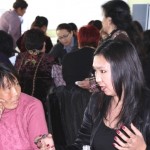
In the Kyrgyz Republic, women constitute a mere 23 percent of members of parliament, falling seven percent short of the mandated quota for women on electoral lists. While political parties do manage to meet the 30 percent minimum quota for their candidate lists, women are often placed in either unlikely positions for election, or party lists are changed after the elections have taken place, ensuring that fewer women are elected.
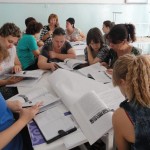
In early 2014, the USAID Reading Together Project developed the National Basic Reading Requirements. In April 2014, USAID conducted an Elementary Grade Reading Assessment (EGRA) in 130 schools in the Kyrgyz Republic. EGRA results showed that only 26% of teachers use effective and innovative methods of teaching reading. It was also found that only 10% of Grade 1 & 2 students and 1% in Grade 4 meet the country’s National Basic Reading Requirements. These findings are troubling, particularly because poor reading skills negatively influence student success in all other school subjects and considerably limit their ability to obtain new knowledge.
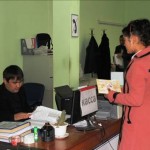
Many citizens of the Kyrgyz Republic lack basic legal knowledge. This question is especially acute in remote areas where there are few lawyers or legal advice services. As a result, citizens face a variety of challenges from registering their land and property rights to receiving basic identity documents such as passports and birth certificates. In some families this problem has been passed from generation to generation: if parents do not have passports, they cannot obtain birth certificates for their children, who later cannot receive passports of their own. Another common issue is people who do not have official citizenship: many people still have Soviet Union passports, which are no longer valid, and thus they cannot access important basic services, receive state benefits or travel outside the country.
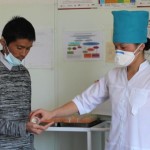
With MDR-TB a growing problem nationwide, Kyrgyzstan’s National TB Program (NTP) and the Ministry of Health (MoH), in collaboration with the USAID-funded TB CARE I project, led by the KNCV Tuberculosis Foundation, have joined forces to address this serious health challenge. National guidelines and protocols on MDR-TB, aligned with WHO recommendations, were developed and approved to facilitate an improved national treatment program.








Comment
Make a general inquiry or suggest an improvement.